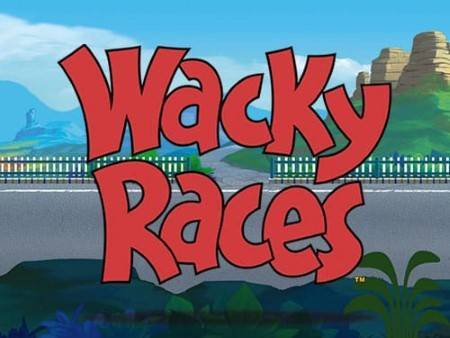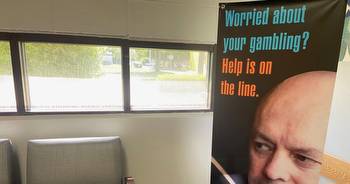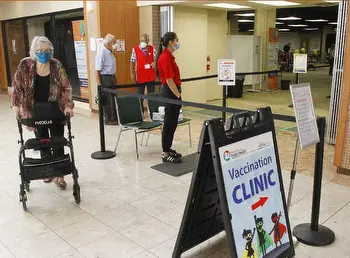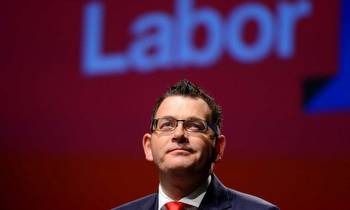Online gambling: this generation’s smoking

An independent regulator and subsidised naltrexone are two proposed strategies to counter this growing crisis.
Leading medical experts have renewed a 10-year-old call for the establishment of an independent gambling regulator, and the PBS listing of opioid antagonist naltrexone for the treatment of gambling disorder.
Speaking to the Standing Committee on Social Policy and Legal Affairs’ inquiry into online gambling and its impacts on those experiencing gambling harm this week, Professor John Saunders, chair of the NSW/ACT Branch of the RACP’s Australasian Chapter of Addiction Medicine, said the increasing prevalence of online gambling was creating harms equivalent to those seen by smoking two generations ago and alcohol a generation ago.
“The easier gambling is to access, the more repetitive it is, and the more it generates engagement, the more likely it is to become addictive,” Professor Saunders said.
“With offline gambling we have data going back 20-30 years that shows harms in 6-7% of people. In online gambling we believe those numbers are 10-12%.
“This is a relatively recent phenomenon and we have a strong sense of escalating concerns about online gambling.”
Professor Steve Robson, president of the federal AMA, agreed.
“We have concerns about the increased prevalence of online gambling and the toll of harms from gambling,” he told the committee.
“The landscape has become more complex. The ease of access for those under 18, the lack of a regulatory framework around advertising and digital technology are all concerning.
“We know the harms can be far-reaching – including domestic violence, family break-ups, financial distress and damage to physical and mental health,” said Professor Robson.
“Online gambling regulation is ineffective. It should be totally unacceptable for children and young people to be gambling.”
Professor Saunders said it was clear online gambling operators were targeting young people, and that gaming platforms with sophisticated components such as virtual casinos and “loot boxes” were “a gateway to gambling”.
Professors Robson and Saunders, as well as witnesses from the RANZCP and the Australian Society of Psychologists, urged the government to treat online gambling as a health issue.
“Repetitive gambling affects the very centres [in the brain] that control our emotions, rewards and priorities,” said Professor Saunders.
“The most sophisticated forms of gambling do it extremely well. Gambling disorder should be regarded as a health condition and the appropriate help should be offered.”
In that suite of “appropriate help” Professor Saunders advocated for the use of naltrexone, an opioid antagonist registered with the TGA for use for “alcohol dependence and as adjunctive therapy in the maintenance of formerly opioid-dependent patients who have ceased the use of opioids such as diamorphine (heroin) and morphine”.
According to Professor Saunders naltrexone was being prescribed by psychiatrists for the treatment of gambling disorder, even though it was off-label for that indication and not subsidised by the PBS for that use, “unless used concurrently with alcohol disorder”.
“It is not the be-all and end-all of treatment, but it gives people a good head start,” he said. “It should be incorporated with psychological intervention.
“I would encourage the listing of naltrexone on the PBS, which would require a submission by the pharmaceutical company concerned.”
A spokesperson for Generic Health, a sponsor of naltrexone since 2007, told TMR that “we cannot offer comment at this stage, but I can confirm that we are investigating this”.
Another naltrexone sponsor, Arrotex said they would “investigate further”.
“At this stage, we have not made plans to PBS list naltrexone for the treatment of gambling disorder. We are however committed to ensuring Australian patients can access the medicines they need. [We] intend to investigate this further to determine if there is an opportunity for us to apply for the listing and support these patients with subsidised treatment,” said Hayley Tamborini, Arrotex’s executive general manager for pharmaceuticals.
The importance of an independent gambling regulator had never been clearer, said Professors Robson and Saunders to the committee.
“Such an independent body would have oversight of gambling advertising, ensuring that the operators are conforming to the legislation,” said Professor Saunders. “It could receive submissions of concern from the public.
“There is a need for regulation of offshore gambling – at the moment it is very difficult to identify how much online gambling is offshore.”
Other benefits of an independent regulator included the establishment of a national self-exclusion register, and regulation of the incorporation of monetised gambling into gaming platforms, he said.
“At the moment advertising of online gambling is prolific – it’s the equivalent of what it was like for cigarettes two generations ago.
“An independent regulator was the recommendation [many of us] made 10 to 12 years ago and was never put into operation.
“Forty years ago the government introduced random breath testing and access to treatment for drink drivers,” Professor Saunders said. “The death rate has decreased hugely since then and tens of thousands of deaths have been prevented.
“We hope [today’s government] will have a similar legacy.”
In other gambling news The Guardian reported that the gambling industry “has given federal politicians about 150 free tickets to sporting events, shows and hospitality since the 2019 election”.
In the lead-up to the NSW election on 25 March, the Public Health Association of Australia has urged NSW Labor to improve its position on gambling.
Adjunct Professor Terry Slevin, CEO of the PHAA, said Labor’s current policy stance on gambling machine reform was “woefully inadequate”.
“It focuses on a trial on 500 machines out of more than 86,000 machines across the state, and falls far short of what the Liberal Party is offering,” he said.
“By avoiding evidence-based policies like a built-in mandatory pre-commitment cashless card system with daily, monthly, and yearly upper limits, the NSW Labor Party, if elected, will be responsible for encouraging gambling harms.
“We are asking incumbent NSW Labor MPs to lobby their leader Chris Minns and shadow minister for health Ryan Park to commit to an evidence-based stance, rather than watered-down policies that preserve a harmful industry.”



































